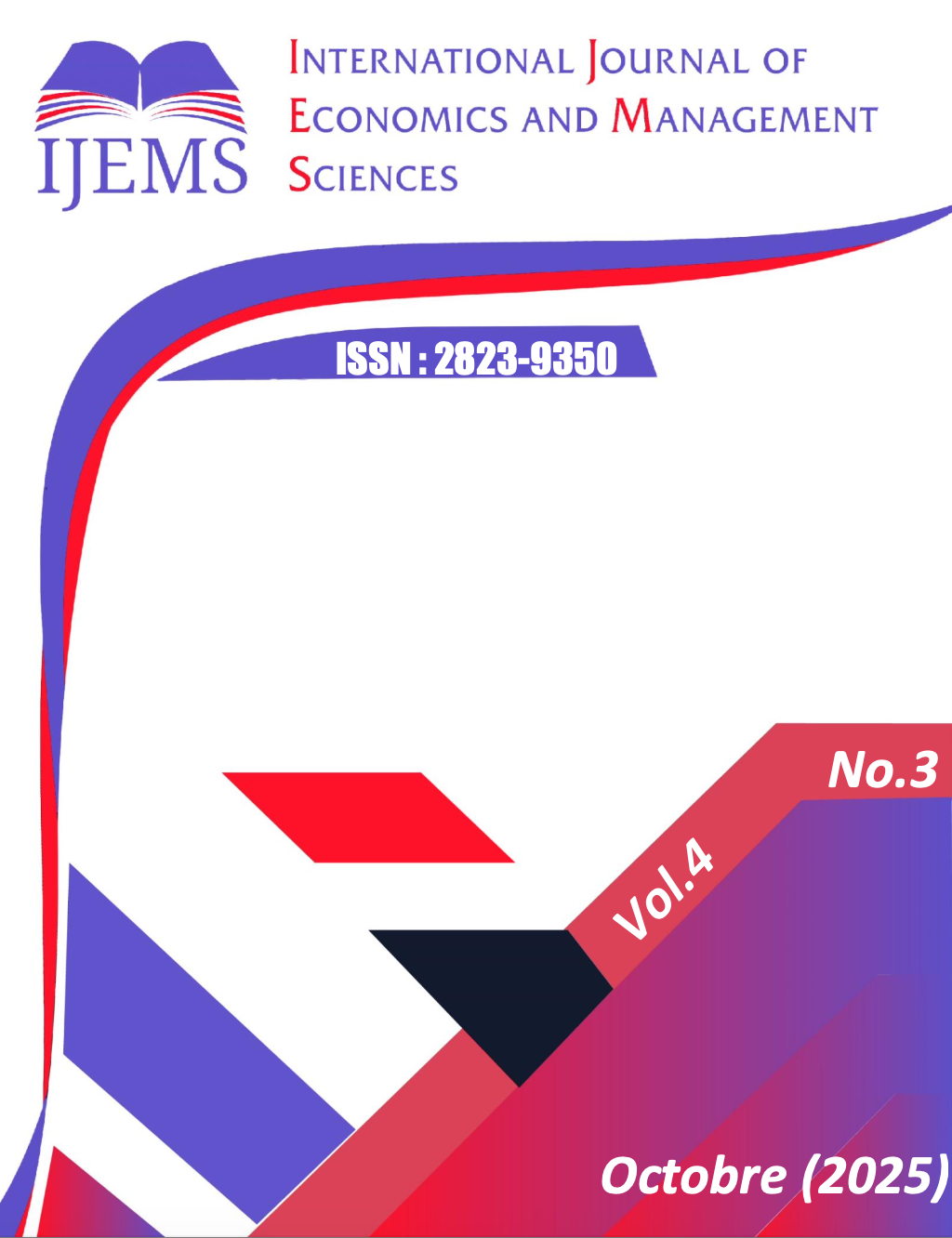L' impact de l'IFRS 15 sur la Gouvernance d'Entreprise: Transitions vers une Transparence Accrue et des Pratiques Financières Responsables
Keywords:
Corporate governance, IFRS 15, Financial transparency, Stakeholders, Strategic managementAbstract
Corporate governance and IFRS 15 are two essential pillars that, in the context of increasing globalization, are closely linked by common objectives—primarily enhancing transparency, trust, and sound financial management. This literature review aims to highlight how corporate governance relies on principles such as clarity, accountability, and fairness, which align closely with the objectives of IFRS 15 – Revenue from Contracts with Customers.
The main objective of this work is to understand how the application of IFRS 15 contributes to improving governance practices, particularly in financial reporting and disclosure. The methodology is based on a documentary analysis of academic literature, professional reports, and regulatory texts, in order to establish a clear connection between IFRS 15 requirements and the key pillars of corporate governance.
The findings show that IFRS 15, by enforcing a more transparent and consistent revenue recognition process, encourages companies to adopt practices aligned with effective governance. The standard also promotes better communication with stakeholders (investors, shareholders, customers), thereby reinforcing corporate credibility and trust.
This research stands out through its combined approach, linking an international accounting framework with organizational governance practices. It demonstrates that financial compliance is not merely a technical requirement but a key component of governance maturity and strategic direction.
The relevance of this study lies in its practical insight for companies applying IFRS, particularly those operating in complex or highly regulated environments, and shows how IFRS 15 can be seen not as a constraint but as a tool for governance and financial management.


















